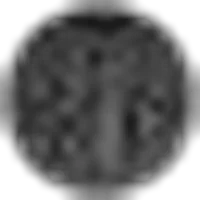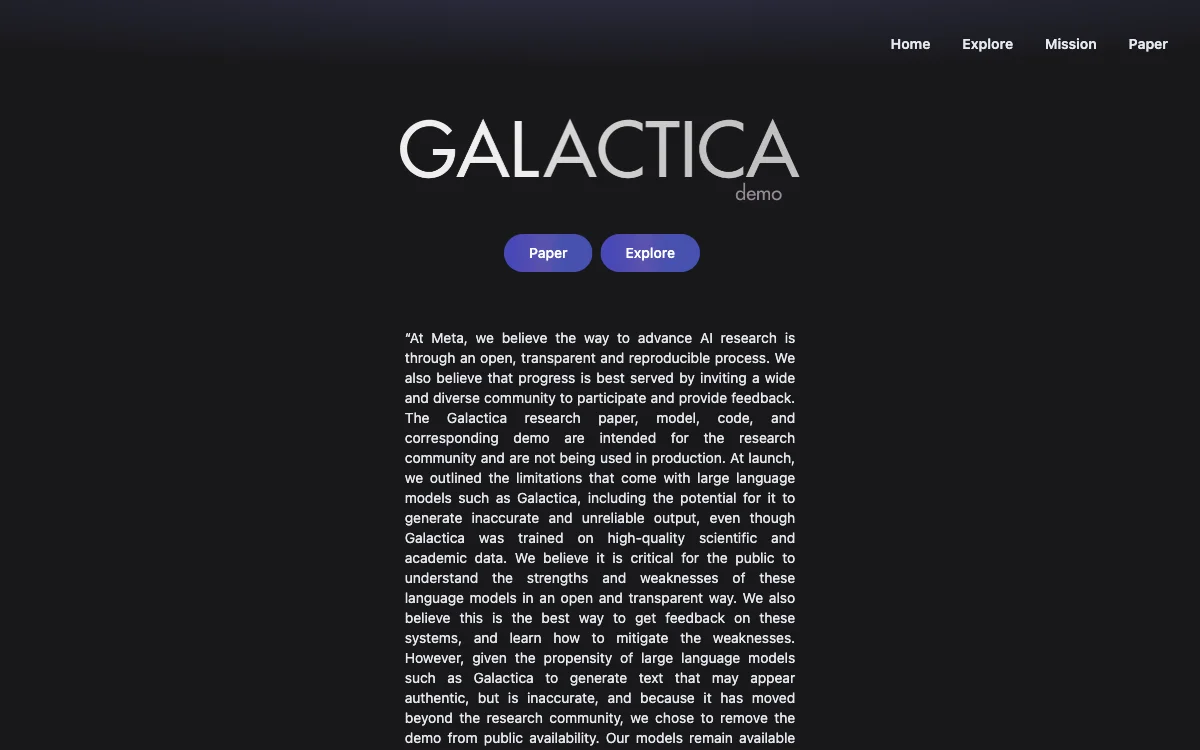The Galactica Demo represents a significant step forward in the field of artificial intelligence research, particularly in the development and application of large language models. Developed by Meta, this tool is part of a broader initiative to foster an open, transparent, and reproducible AI research process. The Galactica model, along with its accompanying research paper, code, and demo, was specifically designed for the research community, emphasizing the importance of collaboration and feedback in advancing AI technologies.
At its core, Galactica is a large language model trained on a vast corpus of high-quality scientific and academic data. Its primary purpose is to assist researchers in exploring complex scientific concepts, generating hypotheses, and facilitating the discovery of new knowledge. However, it's important to note that Galactica, like other large language models, has its limitations. These include the potential to produce inaccurate or unreliable outputs, a challenge that Meta has openly acknowledged.
In response to these challenges, Meta has taken a proactive approach by removing the Galactica demo from public availability. This decision underscores the company's commitment to responsible AI development and its recognition of the potential risks associated with the misuse of such technologies. Despite this, Meta continues to make the Galactica model available to researchers, enabling them to delve into the intricacies of the model, reproduce the findings presented in the research paper, and contribute to the ongoing discourse on AI ethics and safety.
The development and deployment of Galactica highlight the critical role of transparency and community engagement in AI research. By inviting a diverse range of perspectives and expertise, Meta aims to address the inherent weaknesses of large language models and explore innovative solutions to mitigate these issues. The Galactica project serves as a testament to the potential of AI to revolutionize scientific research, while also emphasizing the need for careful consideration of the ethical implications of such technologies.

